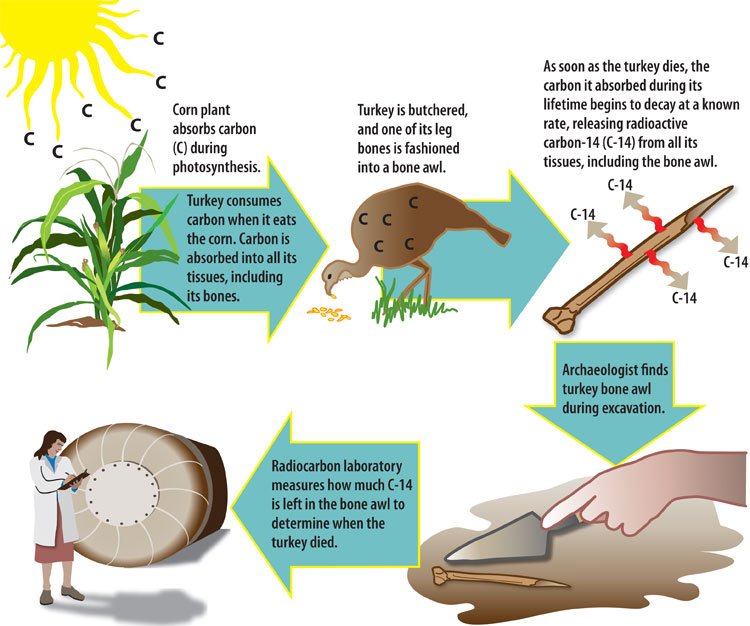
noun
- the determination of the age of objects of organic origin by measurement of the radioactivity of their carbon content.
noun
- a technique for determining the age of organic materials, such as wood, based on their content of the radioisotope 14 C acquired from the atmosphere when they formed part of a living plant. The 14 C decays to the nitrogen isotope 14 N with a half-life of 5730 years. Measurement of the amount of radioactive carbon remaining in the material thus gives an estimate of its ageAlso called: carbon-14 dating
- A technique for measuring the age of organic remains based on the rate of decay of carbon 14. Because the ratio of carbon 12 to carbon 14 present in all living organisms is the same, and because the decay rate of carbon 14 is constant, the length of time that has passed since an organism has died can be calculated by comparing the ratio of carbon 12 to carbon 14 in its remains to the known ratio in living organisms. Also called carbon-14 dating
 Liberal Dictionary English Dictionary
Liberal Dictionary English Dictionary